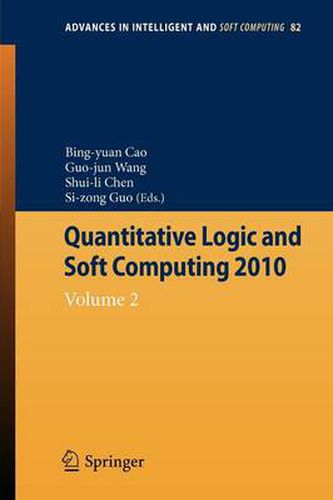Readings Newsletter
Become a Readings Member to make your shopping experience even easier.
Sign in or sign up for free!
You’re not far away from qualifying for FREE standard shipping within Australia
You’ve qualified for FREE standard shipping within Australia
The cart is loading…






This title is printed to order. This book may have been self-published. If so, we cannot guarantee the quality of the content. In the main most books will have gone through the editing process however some may not. We therefore suggest that you be aware of this before ordering this book. If in doubt check either the author or publisher’s details as we are unable to accept any returns unless they are faulty. Please contact us if you have any questions.
Admittedly, the notion intelligence or intelligent computing has been around us for several decades, implicitly indicating any non-conventional methods of solving complex system problems such as expert systems and intelligent control techniques that mimic human skill and replace human operators for automation. Various kinds of intelligent methods have been suggested, phenomenological or ontological, and we have been witnessing quite successful applications. On the other hand, Soft Computing Techniques is the concept coined by Lot? Zadeh, referring to a set of approaches of computing which parallels the remarkable ability of the human mind to reason and learn in an environment of uncertainty, imprecision and partial truth.
Such a notion is well contrasted with the conventionalbinary logic based hard c- puting and has been effectively utilized with the guiding principle of exploiting the tolerance for uncertainty,imprecision and partial truth to achieve tractability, - bustness and low solution cost.
The soft computing techniques are often employed as the technical entities in a tool box with tools being FL, ANN, Rough Set, GA etc. Based on one’s intuition and experience, an engineer can build and realize hum- like systems by smartly mixing proper technical tools effectivelyand ef?ciently in a wide range of ?elds. For some time, the soft computing techniques are also referred to as intelligent computing tools.
$9.00 standard shipping within Australia
FREE standard shipping within Australia for orders over $100.00
Express & International shipping calculated at checkout
This title is printed to order. This book may have been self-published. If so, we cannot guarantee the quality of the content. In the main most books will have gone through the editing process however some may not. We therefore suggest that you be aware of this before ordering this book. If in doubt check either the author or publisher’s details as we are unable to accept any returns unless they are faulty. Please contact us if you have any questions.
Admittedly, the notion intelligence or intelligent computing has been around us for several decades, implicitly indicating any non-conventional methods of solving complex system problems such as expert systems and intelligent control techniques that mimic human skill and replace human operators for automation. Various kinds of intelligent methods have been suggested, phenomenological or ontological, and we have been witnessing quite successful applications. On the other hand, Soft Computing Techniques is the concept coined by Lot? Zadeh, referring to a set of approaches of computing which parallels the remarkable ability of the human mind to reason and learn in an environment of uncertainty, imprecision and partial truth.
Such a notion is well contrasted with the conventionalbinary logic based hard c- puting and has been effectively utilized with the guiding principle of exploiting the tolerance for uncertainty,imprecision and partial truth to achieve tractability, - bustness and low solution cost.
The soft computing techniques are often employed as the technical entities in a tool box with tools being FL, ANN, Rough Set, GA etc. Based on one’s intuition and experience, an engineer can build and realize hum- like systems by smartly mixing proper technical tools effectivelyand ef?ciently in a wide range of ?elds. For some time, the soft computing techniques are also referred to as intelligent computing tools.